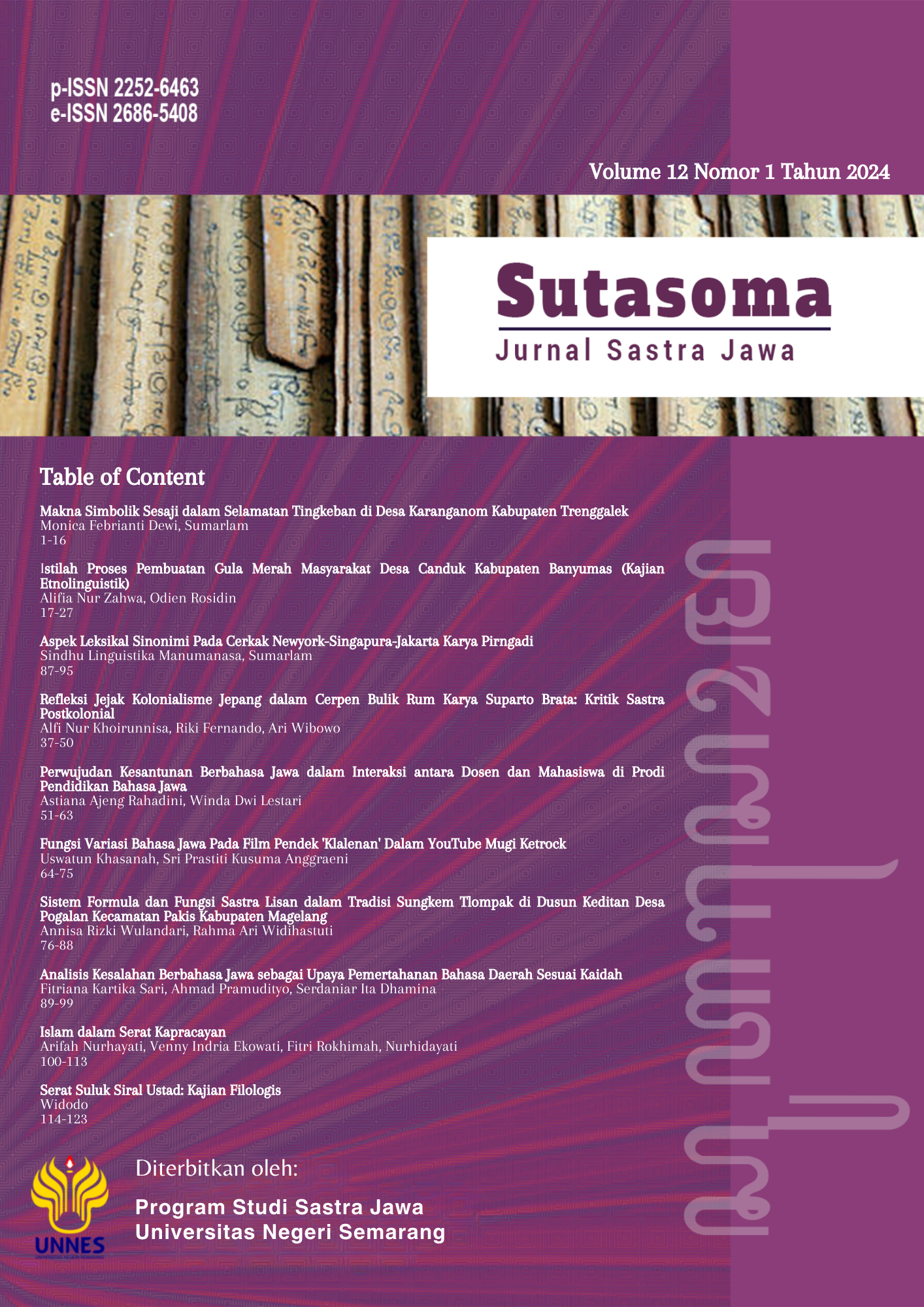Refleksi Jejak Kolonialisme Jepang dalam Cerpen Bulik Rum Karya Suparto Brata: Kritik Sastra Postkolonial
DOI:
https://doi.org/10.15294/3bzdda51Keywords:
Japanese colonialism; Suparto Brata; literary criticism; Homi BhabhaAbstract
The colonization of Indonesian people is one of the events that is imprinted in people's memories. One of the nations that colonized Indonesia was Japan, which began in 1942 until 1945. The Japanese occupation was filled with interactions between colonizers as self and natives as other in the form of domination. The track record of the Japanese occupation became one of the themes raised by the author Suparto Brata in his short story entitled Bulik Rum. This research aims to reveal the traces of colonialism that occurred during the Japanese occupation using a postcolonial literary criticism approach through the perspective of Homi K. Bhabha. The method used in this research is descriptive qualitative. By assuming literary works as a reflection of reality, the socio-cultural conditions contained in the story are explained using the concepts of mimicry, hybridity, and ambivalence as formulated by Bhabha as conditions of postcoloniality. After analyzing the data obtained in the short story, the results obtained are as follows. First, the problems of mimicry, hybridity, and domination that exist between the colonizers and the colonized are seen in the fields of education, economy, and socio-culture that result in the suffering of the indigenous people. Second, as a postcolonial literary work, this short story still focuses on the hierarchical relationship between the colonizers and the colonized that places the colonizers as dominant.
Downloads
Downloads
Published
Article ID
1793Issue
Section
License
Copyright (c) 2024 Sutasoma : Jurnal Sastra Jawa

This work is licensed under a Creative Commons Attribution-ShareAlike 4.0 International License.




